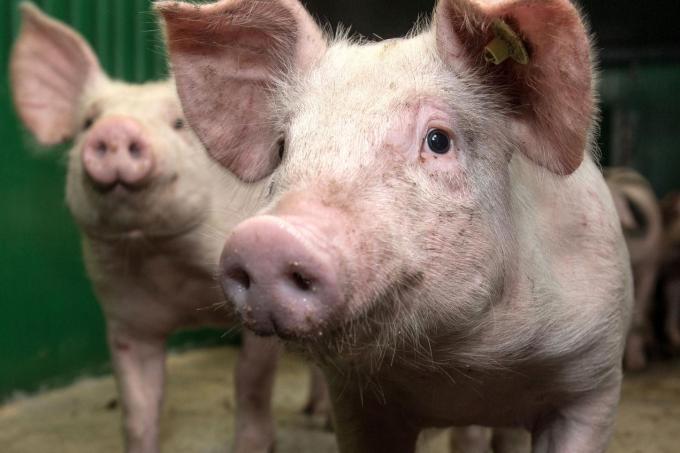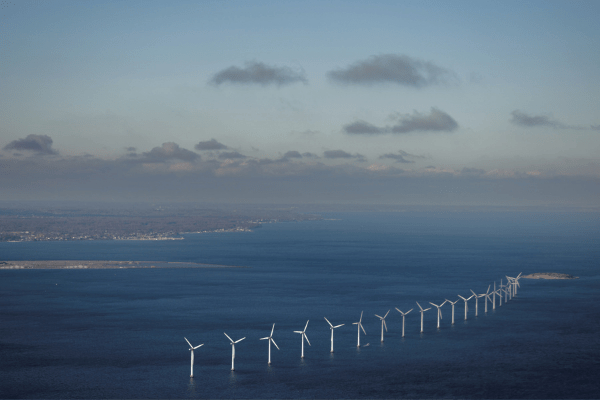May 23, 2025 | 10:28 GMT +7
May 23, 2025 | 10:28 GMT +7
Hotline: 0913.378.918
May 23, 2025 | 10:28 GMT +7
Hotline: 0913.378.918

In total, it is thought that a decrease of livestock on this scale would reduce emissions by about 1 million tonnes of CO2 equivalent. Photo: Brusselstimes
The group found a significant reduction of CO2 emissions in agriculture is impossible without slashing the livestock, suggesting that it should be decreased by around 23 million chickens, 1.7 million pigs, 100,000 dairy cows and 40,000 suckler cows, according to reports from Het Nieuwsblad.
“Although technology can help reduce these emissions, it is impossible to achieve a significant reduction in total emissions from our agriculture with the current number of animals,” the report stated.
In total, it is thought that a decrease of livestock on this scale would reduce emissions by about 1 million tonnes of CO2 equivalent, which will be necessary for Flanders, as it is reported the region will currently not reach the mark of a 55% reduction in greenhouse gases by 2030 as set out in the European Union’s Green Deal.
The panel experts added that, aside from being beneficial for the environment, slashing the region’s livestock will also have a positive impact on air pollution, the water and air quality and biodiversity, as the additional space that would become available could be transformed into forests, moors and river valleys.
Alongside the advice to cut the number of pigs and cows, the panel also recommended the government invest more heavily in the “protein transition”, referring to making the switch to more vegetable and less animal-based foods, as well as supporting green energy investments in agriculture.
Next Friday, the government is expected to discuss extra measures that can be taken to improve the impact on the climate and global warming.
However, whether this latest advice – formulated by the panel for the government for the third time – will be considered during these discussions remains to be seen, as it is a controversial debate that will have a major impact on the agricultural sector and its farmers.
The Farmers’ Union has already argued for sufficient support for farmers who are looking to invest in greener alternatives, adding that if farmers have to stop certain production, either because of a reduction in livestock or strict nitrogen rules, they must be compensated.

Offshore wind farms. Photo: Brusselstimes
A study carried out by the Bureau fédérale du Plan (BFP) – an independent Belgian organisation that investigates questions of environmental and social importance – concluded that offshore wind farms could be key to achieving climate neutrality.
The results show that, on a national level, wind farms could allow Belgium to move away from more polluting energy sources. The study was conducted following an agreement made with Denmark to cooperate with infrastructure for offshore wind farms.
To put in place the turbines capable of producing such an effect, researchers proposed two options: installing a wind farm in Danish waters or one in both Danish and Dutch waters. In the first case, a capacity of three Gigawatts electricity could be produced; in the second, the second could produce 15 Gigawatts, Belga News Agency reports.
“This will clearly not satisfy Belgium’s total energy demands, but to make use of the large quantities of renewable energy that this infrastructure would produce, a more flexible energy mix would need to be developed,” researchers wrote in reference to the unpredictable nature of renewable energy sources that can vary greatly in their output.
In order to accommodate for this fluctuating output, the researchers cite hydrogen production as a way to make use of excess electricity. Hydrogen is often touted as the energy source of the future thanks to its clean-burning credentials (it produces only water when burnt) and high energy output. However, producing hydrogen requires a lot of energy in the electrolysis process. To this end, surplus energy from renewables could be used for hydrogen production when supply outstrips demand elsewhere on the grid.
The study explains that “there are many ways to reach climate neutrality whilst both ensuring that supply can meet demand and that production costs are not too high. Whichever plan is decided upon, significant financial investment will be needed to realise this renewable infrastructure.”
With regards to investment in cleaner energy, the researchers stressed the importance of creating a “stable regulatory framework and policies.”
(Brusselstimes)

(VAN) Alt Carbon has raised $12 million in a seed round as it plans to scale its carbon dioxide removal work in the South Asian nation.

(VAN) Attempts to bring down the price of the Japanese staple have had little effect amid a cost-of-living crisis.

(VAN) Fourth most important food crop in peril as Latin America and Caribbean suffer from slow-onset climate disaster.

(VAN) Shifting market dynamics and the noise around new legislation has propelled Trouw Nutrition’s research around early life nutrition in poultry. Today, it continues to be a key area of research.

(VAN) India is concerned about its food security and the livelihoods of its farmers if more US food imports are allowed.

(VAN) FAO's Director-General emphasises the need to work together to transform agrifood systems.

(VAN) Europe is facing its worst outbreak of foot-and-mouth since the start of the century.